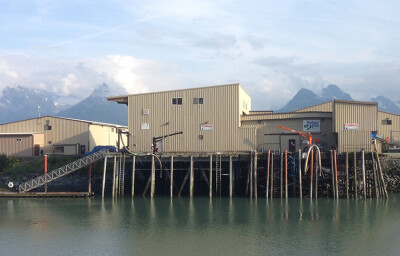The Chinese philosopher Lao-tzu said the journey of a million miles begins with a single step. You'd almost think he had the lengthy Magnuson-Stevens Act reauthorization process in mind.
The first in a series of congressional oversight hearings regarding Magnuson-Stevens Act reauthorization was held on March 13. As House Natural Resources Committee Chairman Richard "Doc" Hastings (R-Wash.) noted in his opening remarks at the hearing, "Judging by the number of bills to amend the Magnuson-Stevens Act introduced last Congress, there is certainly an interest among members — and their constituents — in modifying the act."
Those bills contain a number of ideas for amending Magnuson: modifying the annual catch limit requirement; adding flexibility to stock rebuilding timelines; adding transparency to the regional fishery management councils and their science and statistical committees; new uses for money collected from fisheries fines and penalties; modifying disaster assistance provisions; and a definition and restrictions on catch share management programs.
Both the Full Committee and the Subcommittee on Fisheries, Wildlife, Oceans and Insular Affairs held several hearings in the 112th Congress on Magnuson-related topics. But Hastings says that because the act expires at the end of FY 2013, the real reauthorization work will take place this session of Congress.
Well, that would be nice. But the length of time it's taken for past reauthorizations to take place doesn't suggest that the current effort will be completed quickly.
Consider this: When the act was first reauthorized in 1996, it marked the end of a nearly four-year journey by Congress to do so. Reauthorization efforts flared up again for the better part of 2001, than ebbed as policy makers awaited reports from the Pew Oceans Commission and U.S. Commission on Ocean Policy that they said would influence the act's reauthorization. It would be 2006 before Congress would complete the second reauthorization.
Now factor in how long it takes for the present version of Congress to get, well, anything done. Dithering on Capitol Hill delayed for several months appropriating disaster assistance funds to New Jersey after Superstorm Sandy devastated Garden State communities. We're still waiting for Congress to allocate aid to New England, Alaska and Mississippi after the Department of Commerce issued fisheries disaster declarations last year.
And of course, Congressional inaction has led to the prospect of across-the-board forced federal spending cuts from the sequester. The stagnation on Capitol Hill plus the cost-cutting atmosphere in Washington doesn't fill you with confidence that Congress will be showering the fishing industry with attention — or help — anytime soon.






